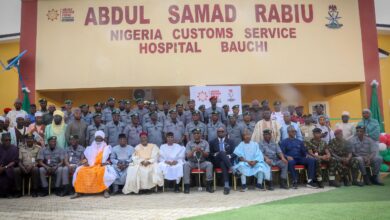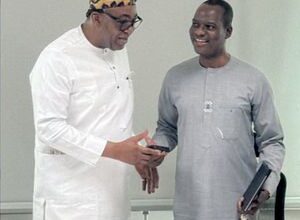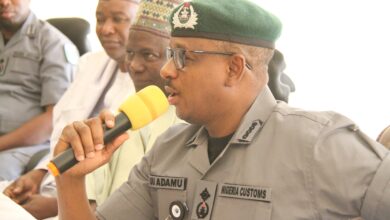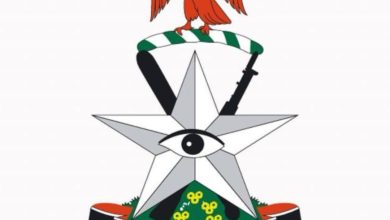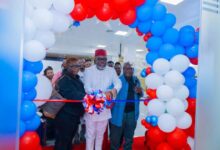Activists Meet in Monrovia, Brainstorm Over Reprisals on Frontline West Africa Grassroots Defenders
‘Region Remains Poorest, Least Developed Globally Due to Official Corruption’
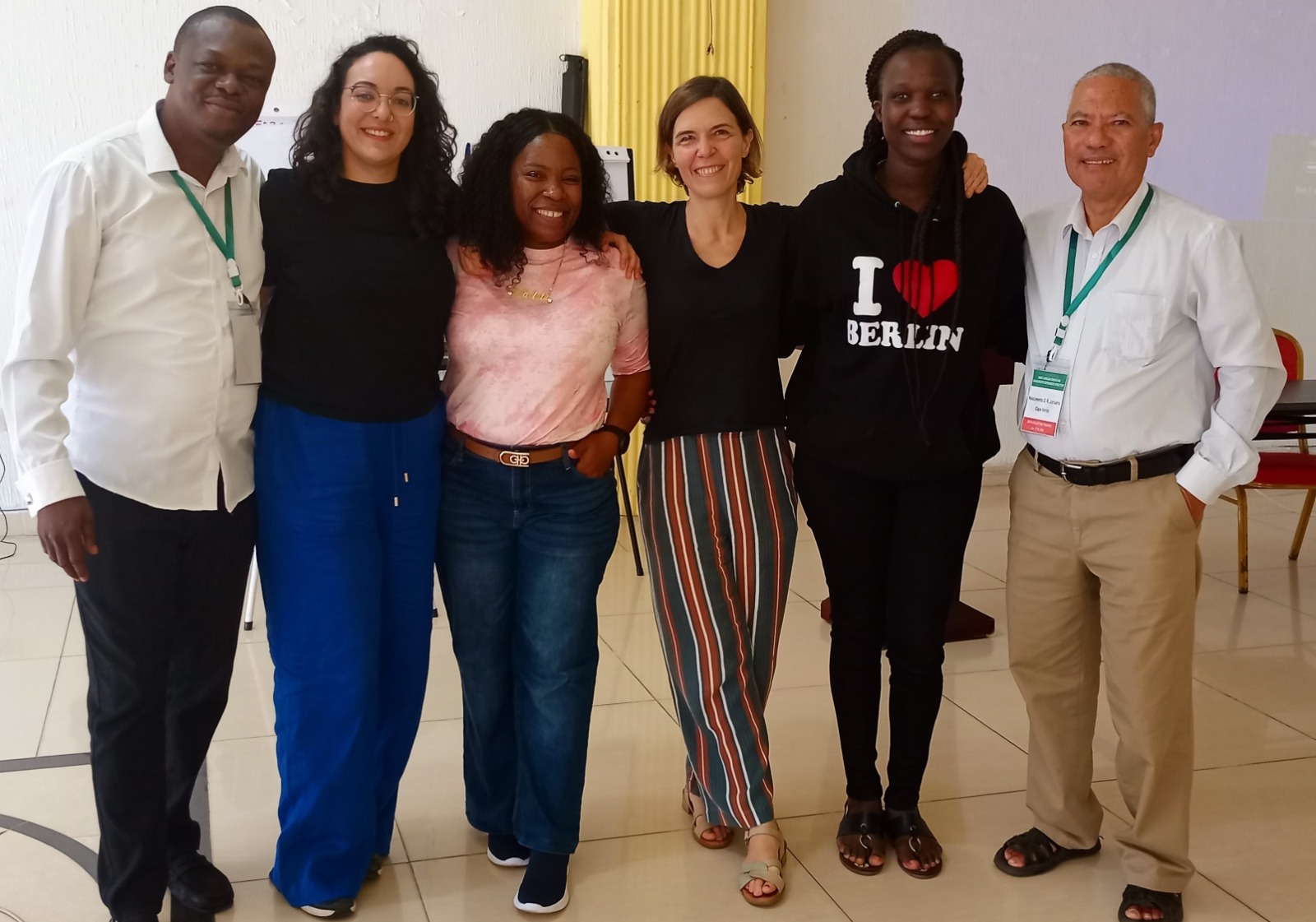
By Edu Abade
Activists from 16 West African countries participated in a training on documentation of reprisals and the plight of frontline grassroots defenders in Monrovia, Liberia from January 17-19, 2024. The training, organised by Green Advocates and the Mano River Union-Civil Society Organisation Platform, was supported by the International Land Coalition (ILC), Business and Human Rights Resource Centre (BHRRC), the Global Witness (GW) and Alliance for Land Indigenous and Environmental Defenders (ALLIED).
Participants were drawn from Nigeria, Ghana, Sierra Leone, Mali, Cape Verde, Mauritius, Cote d’ Ivoire, Togo, Guinea, Senegal, Liberia, Mauritania and the Republic of Benin. The event had as its goal the training of participants on the required knowledge, skills and tools to effectively monitor, document and address the acute under-reporting of abuses against frontline defenders in the region.
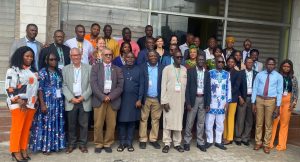
Coordinator of Green Advocates, Peter Quaqua, explained that frontline grassroots defenders continue to contend with abuse from their own governments and transnational corporations operating in the region with very little or no attention to their ordeals.
He said the data collectors training and a planned West African Directory for documenting cases are initiatives and attempts to ensure that the profile of little-known defenders working to protect the planet are documented and for the African story to be told by Africans themselves.
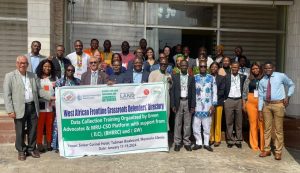 Country Representative, Office of the United Nations High Commissioner for Human Rights (OHCHR), Christian Mukosa, said the training was timely and that the UN agency would remain committed to promoting, protecting and ensuring human rights in Liberia and Africa.
Country Representative, Office of the United Nations High Commissioner for Human Rights (OHCHR), Christian Mukosa, said the training was timely and that the UN agency would remain committed to promoting, protecting and ensuring human rights in Liberia and Africa.
Mukosa argued that human rights encompasses the economic, social protection and developmental issues, noting that the issues he highlighted are interconnected and addressing them remains vital for Africa to achieve the 2030 Agenda and combating poverty ravaging most countries of the continent.
He underscored the fundamental role human rights plays in fostering sustainable development and addressing pressing challenges in the region hence the need for a comprehensive approach to data collection and also affirmed the UN’s commitment to promoting a holistic human rights agenda even as he stressed the need for accurate and meaningful data to guide policy and decision-making.
Acting Campaign Lead of the Land and Environmental Defenders Campaign of the Global Witness, Rachel Cox, who explored the subject matter, explained that the organisation has produced reports showing attacks on people defending their communities across the globe, particularly in Latin America.
She highlighted the fact that Africa has been largely underreported in view of lack of data predicting that the West African Directory conceived by the Green Advocates and MRU staff was an ambitious initiative.
Cox stressed the need to strengthen the template dashboard for data collection presented to participants for review, maintaining that its use will address the gaps in global datasets and project the real stories of defenders in the region working to protect their human rights.
On her part, the Global Witness Senior Adviser, Land and Environmental Defenders, Laura Furones, explained that her organisation has been documenting the incidences of murders of rights defenders since 2012 and that the total number of killings of defenders stood at 1,910 since 2012.
She noted that most of the records from Global Witness emanated from Latin American countries like Ecuador, Brazil and Honduras, noting however that the under-reportage of killings in Africa made it imperative for a database that can be the source of information that can adequately capture the reality of the global picture.
Also speaking, Resident Representative of the Economic Community of West African States (ECOWAS), Josephine Nkrumah, said accurate data collection provides the requisite information that enables governments to put in place adequate policy and make adequate predictions to be able to safeguard and continue to build sustainable nations.
Echoing the same view, the Civil Freedom and Human Right Defenders (HRDs), Researcher and Database Coordinator of BHRRC, Hannah Matthews, acknowledged the difficulty and challenges of reporting in Africa and specifically West Africa.
Hannah said the work of frontline grassroots defenders piles pressure on state actors in putting policies and measures in place to ensure that the defenders are protected despite the risk they face in the protection of the land and environment. She explained that the data gap observed in West Africa puts the burden on civil society groups and those on the frontlines to fill the gap.
Earlier, recipient of the Liberian Goldman Environmental Prize in 2019, Alfred Brownell, said the gathering was an epoch-making event in the quest to gather evidences of reprisals and the plight of frontline grassroots defenders in the West African sub-region.
He insisted that he and some members of his family were victims of reprisals because of his advocacy to prevent the destruction of tropical forests for palm oil production, lamenting that after receiving death threats as a result of his work, he and his family fled Liberia in 2016.
He charged the participants to sharpen their skills in data collection and proper documentation as it was crucial to recording the true picture of what is happening in West Africa and the entire African continent.
Besides the interventions, the event equally had brainstorming and breakout sessions which afforded participants the opportunity to review their strengths and weaknesses, as well as threats and the opportunities that they could exploit in doing their work better.
In the communiqué that was drafted at the training, participants observed that frontline grassroots defenders live in vulnerable communities that have suffered systematic and historic threats, reprisals, marginalisation, killings and other forms of abuses from their governments and transnational corporations.
They noted that in spite of the rich natural resource deposits, West Africans were among the poorest and least developed in the world because of official corruption, insisting that international data collection organisations have not been able to fully cover West Africa, a situation that had resulted in the violation of defenders without documentation.
In their resolutions, they condemned the killings and non-lethal attacks of defenders in West Africa by state and non-state actors and called on state authorities to recognise the role of indigenous communities and defenders, and do more to protect their rights by investigating incidents of reprisals to end impunity for crimes against the victims.
They also demanded that the authorities and concessionaires should comply with applicable laws and standards on free, prior and informed consent in granting private investors and concessionaires the rights to extract natural resources in indigenous communities. They expressed the determination to collaborate with international organisations in elevating the plight and security of grassroots defenders in order to secure emergency support mechanisms for those in need.
Signatories to the communiqué include Liberia=based Green Advocates International (GAI), Strategic Youth Network for Development (SYND) from Ghana, Pilex Centre for Civic Education Initiative and the Renevlyn Development Initiative (RDI) both from Nigeria, the Network Movement for Justice and Development (NMJD) in Sierra Leone, Youth Initiative for Land in Africa (YILAA) from Republic of Benin and No-Vox from Cote d’ Ivoire, among others.






